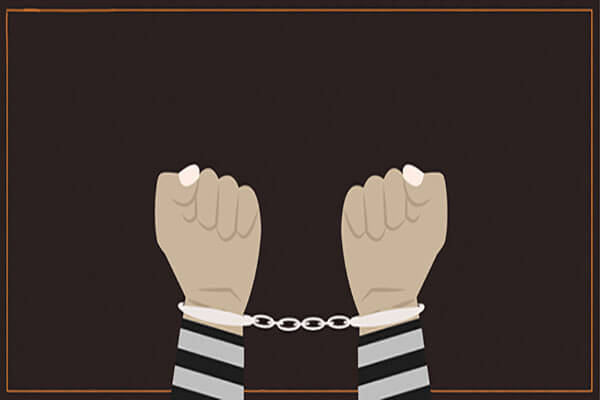Section 4(b) of code of criminal procedure 1898 talks about bailable and nonbailable offenses, but before it is necessary to understand the word bail. Bail is the release of an accused held in the legal custody while waiting for the trail or appeal against the decision and it is irrelevant whether the person is in police custody or in judicial.
Police after the arrest of the accused authorized to release him depending upon the conditions to be fulfilled in this regard.
There are two possibilities to release an accused on bail:
- He can claim this release on bail as a matter of right or,
- He can claim this release at the discretion of the court
If anyone claims it as a matter of right, it is possible only regarding a bailable offense, and if it is claimed as the discretion of the court it is a non-bailable offense. Sometimes bail is granted in a murder case, it is an exception and will remain an exception and does not become a general rule.
Schedule II column 5 of the Cr.PC 1898 tells us whether offenses provided in the Pakistan Penal Code 1860 are a bailable or non-bailable offense. There is not a single section in the Cr.PC which indicates that a particular offense is bailable or not bailable.
What is the Difference Bailable and Non-Bailable Offenses
Bailable Offense
When a person accused of a bailable offense is arrested or detained without warrant by an officer in charge of the police station or appear before or is brought to the court, and he applied to get bail.
Then the court or the in charge of the police station can discharge him after executing a bond for his appearance under section 496 of Cr.PC 1898.
There is an exception in this section so this section does not apply generally, so when the offense is committed under section 107 of Pakistan penal code (offense to abet, instigate or engage intentionally in the commission of illegal activity) or under section 117 of Pakistan penal code (offense committed by the public generally or more than 10 people to obstruct the peace). So if these offenses are leveled than no bail will be granted.
Non- bailable Offense
When a person accused of a non-bailable offense is arrested or is detained without warrant by an officer in charger of a police station or appear before or brought to the court, he may, before prosecution and after recording reasons in writing, be released on bail.
He is not released, if there is reasonable ground that he has been guilty of an offense punishable with death or life imprisonment section 497 of Cr.PC 1898. But again the court may direct:
- Any person accused under the age of 16 years, or
- Any woman, or
- Any sick or infirm person accused of such offense be released on bail.
There is yet another exception to give bail in non-bailable offenses:
- If he is accused of an offense other than death and his trail is not concluded in one year, or
- If he is accused of an offense punishable with death and his trial is not concluded within two years.
If after the conclusion of the trial and before giving judgment, the court is of an opinion that there is reasonable ground for believing that the accused is not guilty, it releases the accused if he executes a bond for his appearance to bear the judgment under section 497 of Cr.PC 1898.
Admission or Reduce of Bail
Well, Bail is a right in most of the offenses. And it is not granted only in capital offenses. So when a person is arrested, and then he files for bail. In all Bailable and Non-Bailable Offense, an application has to be filled file stating the grounds on which bail should be granted to him.
In this bail application he had to ensure that if bail is granted, he will submit bail bonds(the court will determine the number of bonds) with personal sureties.
Section 513 an 514 of criminal procedure code 1898 states the procedure to submit bonds and when the bond will be forfeited.
After the above discussion, we can say that this distinction between Bailable and Non-Bailable Offense is the creation of law. If the law states that this offense is Bailable and Non-Bailable Offense than no court can change it.
List of bailable and non-bailable offense in PPC is provided in schedule II of code of criminal procedure 1898.








Thanks a lot Mr.Mateen for your help..
Learned a lot from this.
May ALLAH reward you Brother.
Grateful..
Ikram
It’s really helpful keep it up
value able information shared dear sir.